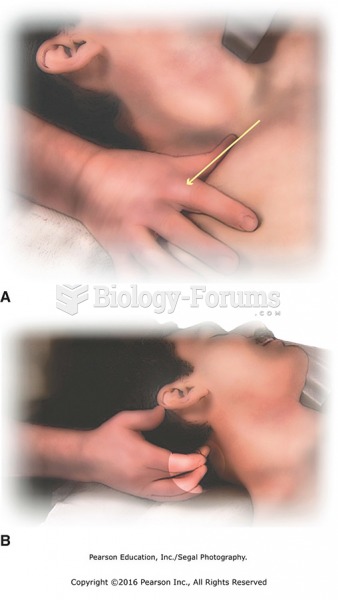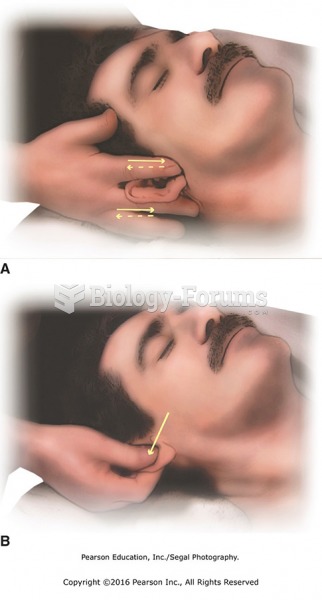|
|
|
Anesthesia awareness is a potentially disturbing adverse effect wherein patients who have been paralyzed with muscle relaxants may awaken. They may be aware of their surroundings but unable to communicate or move. Neurologic monitoring equipment that helps to more closely check the patient's anesthesia stages is now available to avoid the occurrence of anesthesia awareness.
Earwax has antimicrobial properties that reduce the viability of bacteria and fungus in the human ear.
Once thought to have neurofibromatosis, Joseph Merrick (also known as "the elephant man") is now, in retrospect, thought by clinical experts to have had Proteus syndrome. This endocrine disease causes continued and abnormal growth of the bones, muscles, skin, and so on and can become completely debilitating with severe deformities occurring anywhere on the body.
After 5 years of being diagnosed with rheumatoid arthritis, one every three patients will no longer be able to work.
Medications that are definitely not safe to take when breastfeeding include radioactive drugs, antimetabolites, some cancer (chemotherapy) agents, bromocriptine, ergotamine, methotrexate, and cyclosporine.
 Apply direct thumb pressure into points along the upper trapezius from base of neck to shoulder. ...
Apply direct thumb pressure into points along the upper trapezius from base of neck to shoulder. ...
 Perform thumb slides on the back of hand and palm. Slide your thumb between the metacarpals on the ...
Perform thumb slides on the back of hand and palm. Slide your thumb between the metacarpals on the ...





